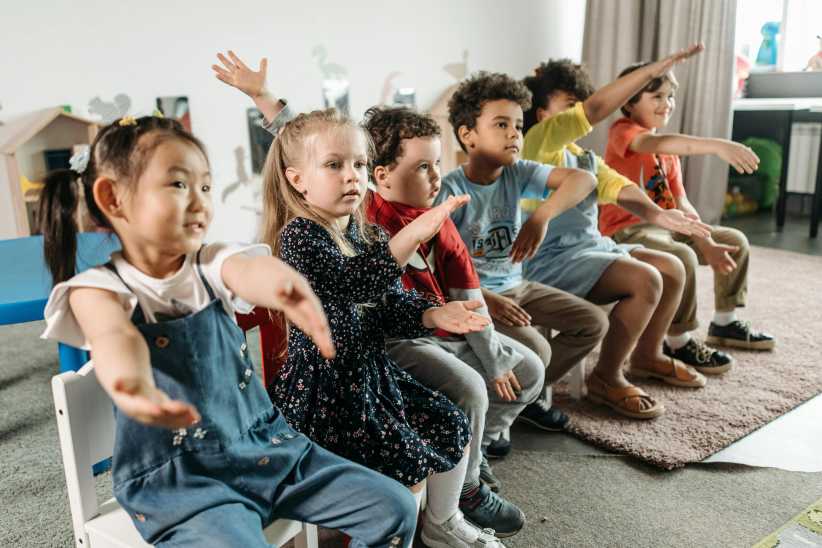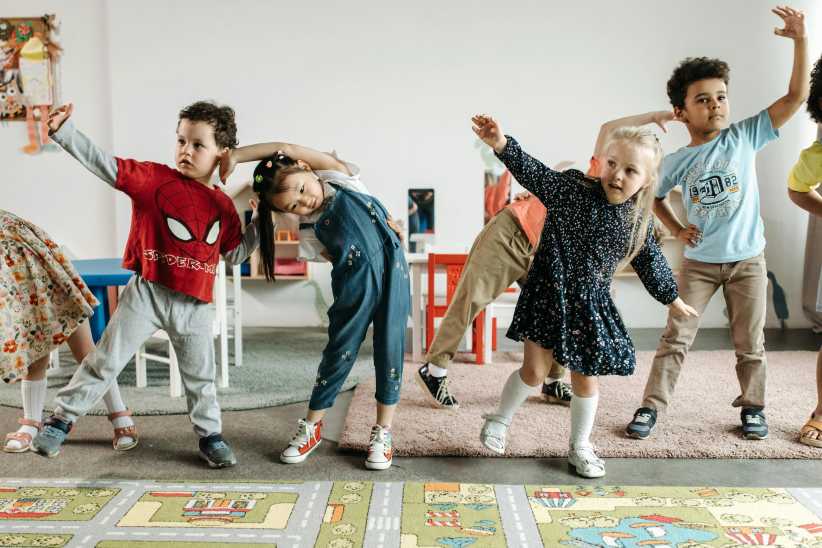
Virtual pediatric appointments are a way to continue your child’s routine medical care or talk to a trusted professional in case of accident or illness. Just because we’re in the midst of a global pandemic doesn’t mean common childhood illnesses and allergies have disappeared. Maybe children need checkups. Perhaps parents are in need of advice. A virtual pediatric appointment can provide those things. To help you understand the ins and outs of virtual pediatrics and Telehealth, we sat down with Dr. Natasha Burgert, a pediatrician at Pediatric Associates in Overland Park, KS. She shares her thoughts on the benefits of virtual appointments why Telehealth may be the future of modern pediatric medicine.
Psst…Looking to keep your kids active and healthy while staying indoors? Check out Indoor Exercise for Kids: Online Classes and Games During Coronavirus
When should you make a virtual pediatric appointment?
Dr. Burgert says she’s seen everything on Telehealth visits from ankle sprains to sniffles. Virtual appointments are both for routine checkups and emergencies. The doctor explains that virtual checkups can be used to keep kids “up to date with their development and nutrition issues, sleep behavior, [and] all the typical things we discuss within the typical well-child visit.”
She also explains, “We can do a lot of illness visits without having to physically touch the kid.” These include an “ADHD medicine check, behavioral health check…constipation, pink eye, and abdominal pain.” She also adds, “We can certainly recommend products for seasonal allergies during these virtual visits.”
In case of an injury, for example, if a child falls while playing outside, Dr. Burgert recommends always calling the pediatrician before going to an emergency room. Now more than ever, she says, “Having parents call their medical home before reaching out to urgent cares or ERs is critically important.” Even if your pediatrician hasn’t done Telehealth visits in the past, the likelihood is that they’ll be doing them now.
What happens at a virtual pediatric appointment?
Virtual pediatric appointments can take place over Zoom, FaceTime, or dedicated Telehealth apps. Dr. Burgert says that “If one piece of technology is really difficult for the parent or patient to use, usually there’s a helpful alternative.” She finds that, logistically, these appointments typically work better over smartphones than web cameras.
Ideally, you will find a quiet, well-lit space in your home to hold the appointment. Dr. Burgert recommends a bathroom “because it still gives you some relative privacy with the parent and the child in case we’d have to ask to take off the shirt of pants in order to fully evaluate skin.”
Once you’re set up over the video chatting service, Dr. Burgert says, “It’s just like any other visit.”
What should you do to prepare for a virtual pediatric appointment?
Preparation is key to conducting an effective virtual pediatric appointment. Dr. Burgert explains that “These Telehealth visits are really quick typically because we’re trying to see as many kids as we can during the day.” Because of that, it’s a good idea to make sure you’re set up with everything you need before the appointment. This might include a scale, a thermometer, any medications the child is taking, and a flashlight. Dr. Burgert says, “If there’s a rash or we need to look in their throats, a flashlight can be really helpful for us.”
In addition to that, the doctor recommends that parents create a written timeline of symptoms in the case of illness-related visits. They should also note down important questions or concerns they have. Dr. Burgert says that this “helps organize the visit as it begins.”
Finally, it helps to send photos and relevant documents to the pediatrician in advance of the appointment (just as you would do for in-person appointments). Many Telehealth platforms have a specific function for sending these types of documents.
What are the drawbacks of a virtual rather than an in-person appointment?
Dr. Burgert explains, “For kids that need immunizations, we must keep them on schedule for those immunizations. Obviously, that would require an office visit.” Beyond that, there are a few specific ailments that may need in-person attention. According to Dr. Burgert, these include “anything that’s going to 100 percent require a physical exam or a test.” For example, an ear infection would require an in-person check unless the parents have the device at home. Strep throat would also require an in-person throat swab.
However, if any of these services are required, they should supplement rather than replace a virtual appointment. Dr. Burgert explains that “Each individual pediatric practice may have tools or tricks to be able to do those visits virtually while some offices may not.” So start with a virtual conversation. Then, if an in-office visit is required, it can be quick and easy. Dr. Burgert says that some services might even be available in the car in a drive-thru setting.
It’s beneficial for parents to familiarize themselves with the logistics of virtual appointments. Dr. Burgert explains that “these types of visits are not going away after the pandemic.” She says, “This will be something that will be a part of pediatric care as we move forward, and it has been in many offices in the past.”
Can virtual appointments help parents distinguish between seasonal allergies and the COVID-19 virus?
One of the main benefits of a virtual pediatric appointment this Spring might be helping parents distinguish between seasonal allergies and viral infections, such as a cold or the COVID-19 virus. Dr. Burgert explains that seasonal allergy symptoms include itchy, watery eyes, tiredness, and occasional sore throats. On the other hand, symptoms of a viral infection include extreme exhaustion (beyond normal fatigue), fevers, aches, and pains. Headaches and sore throats may be attributed to either an allergy or an infection. Dr. Burgert explains that at a virtual pediatric appointment, parents can talk through “the entire profile of what your kid is experiencing.”
Distinguishing between seasonal allergies and viral infections is incredibly important because they should be treated very differently. Dr. Burgert says, “We don’t recommend a lot of over-the-counter meds for kids who have colds anymore.” Instead, she says, we have comfort measures, such as “saline, nasal drops, and humidifiers.” On the other hand, she says that there are “safe and effective over-the-counter treatments” for seasonal allergies. These include “long-acting non-drowsy antihistamines, such as children’s Allegra.” Often, these types of medications are available for delivery, so you don’t need to risk an unnecessary trip to the pharmacy.
Ultimately, Dr. Burgert believes it’s important for “families to know that common childhood illnesses are still happening, even within this pandemic.” So when you need advice about treatments and medication, your pediatrician is still available to help you.
Dr. Burgert explains, “This is a bit of new territory for pediatrics.” Nevertheless, she adds, “We are trying to do as much as we can within our office setting and using Telehealth visits to be able to care for the common conditions that we still need to see our patients for.”























